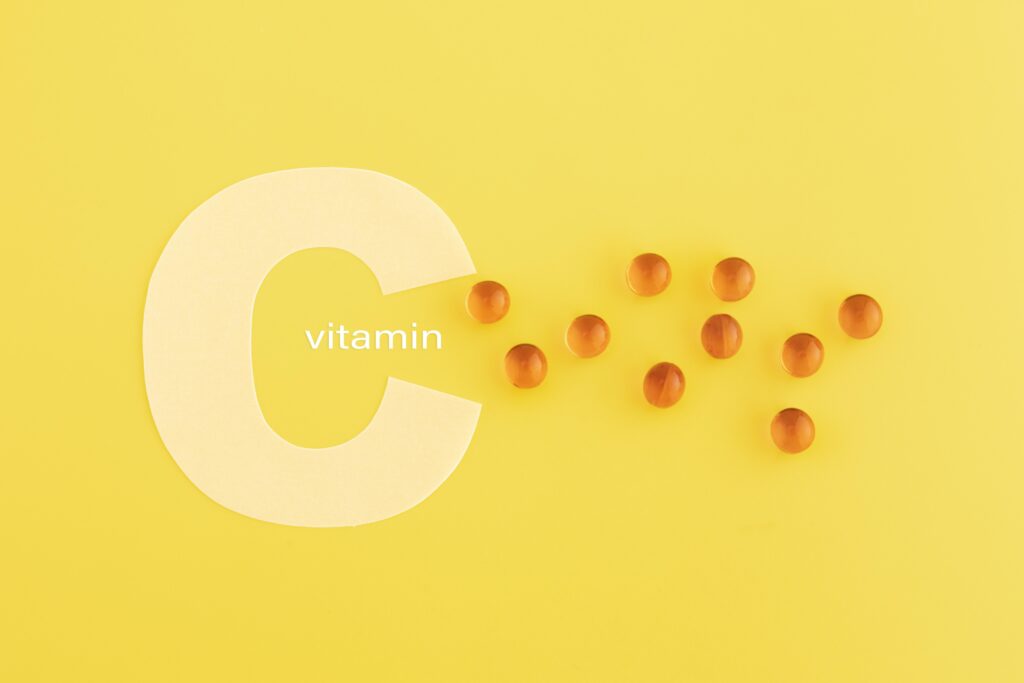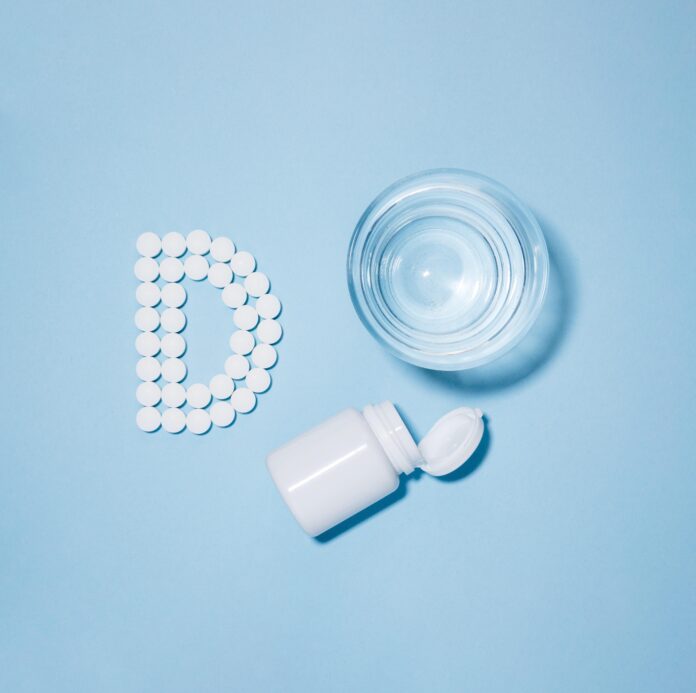Do mood disorders affect the quality of your life? Depression is a type of mood disorder that affects your health and life quality to a great extent. This disorder is increasing globally every day because the burdens of life are bothering everyone with greater intensity, in the hectic routine of this advanced era. Oxidative stress and inflammation are reported as the basic cause of such mood disorders. In light of this information, we can derive a possible mechanism in the pathophysiology of these mood disorders that can help you to determine the relationship between Vitamin D Deficiency and Depression. In this blog article, Online Health point will give you some points where brain boosts the pathophysiology of depression and vitamin D metabolism intersect it.
Here vitamin D is known as sunshine vitamin as it is produced by your body in the presence of sunlight. Vitamin D is an important nutrient that is fat-soluble and positively affects the health of your bones. This healthy nutrient benefits your immune system and cell growth. New research has been found that claims the major role of low vitamin D levels in causing depression.
How does Vitamin D link with Depression? Low levels of vitamin D in your body lead to increased symptoms of anxiety and depression. Therefore, diagnosis, prevention, and treatment planning of depression starts with vitamin D screening. As vitamin D is an active antioxidant that affects your brain tissues, it is important for the treatment of depression and mood disorders.
Here are a few points that may support the potential link between vitamin D and Depression.
Link Between Vitamin D and Depression: Lower circulating levels of vitamin D in your blood are one of the main causes of depression, said researchers. So the two factors are associated with each other in some way. Here are several studies that suggest that during pregnancy, low levels of vitamin D lead to postpartum depression in females. Postpartum depression is a type of depression that lasts for several weeks, months, or years after giving birth. Additionally, researchers have also found a strong association between low vitamin D levels and depression in people who are suffering from various illnesses, including multiple sclerosis, spinal cord injuries, stroke, and gout.
Some authentic resources have claimed that people who take vitamin D supplements experience improvements in depression symptoms. However, more research is needed to clear the potential benefits of vitamin D in depression treatment. Some high-quality studies also prove that taking 1000 IU per day of vitamin D for 2 years didn’t lead to any prominent differences in depression as compared with people who were taking a placebo. Moreover, a recent 2023 study in the Institute of depression pathophysiology in the US found that taking vitamin D does not affect depression.
So these mixed findings have put us in a dilemma about the association between vitamin D and depression. Thus more studies are needed to prove any good association between the both.
Vitamin D Deficiency Risk Factors
Low levels of vitamin D are linked with increasing age, unhealthy lifestyle factors, and limited sun exposure. Keep on reading to learn more about vitamin D deficiency risk factors.
Age
Older age is the leading cause of vitamin D deficiency. Your skin loses its ability to produce enough vitamin D with growing age. Old people develop such eating or lifestyle habits that lead to vitamin D deficiency in their blood. For example, eating diets that lack vitamin D or limiting the time for sun exposure.
Darker Skin Color
It is a universally observed phenomenon that vitamin D deficiency affects Black people more than other populations in the world. A natural pigment melanin found in the skin of people with darker tones. The melanin slows the production of vitamin D production in the skin cells. Therefore people with dark-colored skin tone have a greater risk of vitamin D deficiency than people with lighter tone skin. Thus, as a darker-toned person, you must be concerned about your vitamin D production from sun exposure. Talk to your professional healthcare provider about what to do to resolve this issue. You should add more vitamin-containing foods into your daily diet, including:
- Plant-based milk.
- Vitamin D-fortified mushrooms.
- Vitamin D-fortified dairy products.
- Salmon and trout.
- Eggs.
Diet
Try to increase your vitamin D intake daily by adding great natural sources of vitamin D into your diet. As there are not many food items that are naturally abundant in vitamin D, you can eat:
- Orange juice.
- Cereals like vitamin D-fortified starch.
- Fish liver oil.
- Salmon.
- Mackerel.
- Fatty fish.
- Animal fats.
People following a vegan diet plan have fewer chances to get enough vitamin D. They can fulfill their vitamin D deficiency by eating:
- Fortified grain products.
- Fruit juices.
- Plant-based milks.
You can also use mushrooms that have been exposed to ultraviolet light to increase vitamin D content in them.
Limited Sun Exposure The primary source of getting enough vitamin D according to your body’s requirements is sun exposure. Staying out of the sun will limit your exposure which may lead to vitamin D deficiency in your skin. Various factors decide the amount of sun exposure you need. These factors are:
The primary source of getting enough vitamin D according to your body’s requirements is sun exposure. Staying out of the sun will limit your exposure which may lead to vitamin D deficiency in your skin. Various factors decide the amount of sun exposure you need. These factors are:
- Your local climate.
- The time of the year.
- The time of the day.
People with lighter skin tend to make vitamin D more quickly and in a short time as compared to people with darker skin tones.
Living Near Altitudes
Studies have shown that people living farther away from the equator are more likely to have lower vitamin D levels. Northern latitudes get less sun, so you need more time in the sun to increase your sun exposure.
Obesity
Body mass index is directly proportional to the amount of vitamin D deficiency. Higher levels of BMI are an indication of low vitamin D levels. People with obesity with having body mass index of 30 or more need to absorb more vitamin D to get the recommended nutrient level as compared to people with moderate body weight.
If you are overweight and obese, ask your dietitian to devise a medically proven methodology to increase your vitamin D levels. They will test your vitamin D levels and then help you come up with a plan to increase this level. Usually, high doses of vitamin D supplements are suggested to address a vitamin D deficiency.
Symptoms Regarding Deficiency of Vitamin D and Depression
Vitamin D deficiency and depression are of two types. Each type is distinct based on its own set of symptoms. You should speak with a healthcare provider while experiencing symptoms of both or one of those conditions. They will be able to suggest to you the accurate method to make up for the vitamin D deficiency.
These are the symptoms indicating, you have vitamin D deficiency:
- Weakness in your muscles.
- Pain in your joints.
- Aching bones.
- Drowsiness and fatigue.
While depression has the following symptoms:
- Forgetfulness.
- Lethargy.
- Hypersomnia or insomnia.
- Concentration issues.
- Excessive thoughts of hopelessness and grief.
- Back Pain or headaches.
- Anxiety.
- Loss of interest in sexual activities.
- Loss of appetite.
- Suicidal thoughts.
Treatment of Vitamin D Deficiency and Depression
Depression and deficiency of vitamin D are two different conditions therefore different treatment options are suggested to treat them. However, healthcare professionals agree to the point that several treatments for vitamin D deficiency may also help with depression. Mixed research about this topic invites more research.
Vitamin D deficiency Treatment
Most healthcare professionals and nutritionists suggest increasing the levels of vitamin D in your blood by increasing the intake of this important nutrient. They can also advise you to follow the following ways for this purpose:
- Eat vitamin D-fortified foods.
- Eat foods containing enough vitamin D.
- Increase your sun exposure.
- Take vitamin D supplements.
Treatment Options for Depression
Healthcare professionals usually prescribe antidepressant or psychotherapy medications for the treatment of depression. These medications are more effective when used in combination with some dietary changes, according to your treatment goals and symptoms severity.
If depression is linked with the deficiency of vitamin D in your blood, taking vitamin D supplements according to your body’s needs can help relieve symptoms. But you should be careful about the selection of the supplements and never decide on your own. Talk to your healthcare provider about your treatment options and ask what may be the best option for you.
To reduce the symptoms of depression, you may take the following steps:
- Regular exercise can help reduce depression symptoms by releasing endorphin hormone that induces “feel good” thoughts in you. Start with some lighter exercise for 20 minutes every day then add on minutes. You can also try some cardio two times a week.
- Following a regular sleep schedule is another step in treating depression. Coping with sleep problems will help you in treating your depression. Try to work on your sleep-wake cycle, set a wake-up alarm, and track your progress in a journal. Record all the results you get after performing these practices. You may get an improved quality of sleep.
- Joining a support group can help you come in touch with other people who are suffering from the same problem. Contact those people online, in your community, or by phone call to get information about the symptoms and treatment of depression.
- Liver near to your friends and family. Your loved ones can provide you courage and strength to cope with the symptoms of depression. A group of trustworthy and loving people is a great blessing from God because they can be supportive enough to enable you to treat your symptoms.
Other Vitamins for Coping with Depression
Some more vitamins and minerals other than vitamin D are useful for coping with depression symptoms. These can also play a role in relieving the symptoms of depression, such as: Vitamin C: This vitamin has antioxidant effects on your brain that enable your brain to protect itself against cellular damage that may be the cause of depressive disorders.
Vitamin C: This vitamin has antioxidant effects on your brain that enable your brain to protect itself against cellular damage that may be the cause of depressive disorders.
Magnesium: Like vitamin D deficiency, magnesium deficiency also causes mood disorders in humans. However, more research is needed to prove the benefits of magnesium for the treatment of depression.
How to Get Enough Vitamin D During the Winter Season?
As it is a well-known fact that the winter season is very intense in your area and you spend more time indoors. It gets dark earlier in winter. Therefore it becomes difficult to get maximum sun exposure to aid the vitamin D production in your body.
Additionally, you are more covered in winter when you come outside so that sunlight cannot reach your skin directly. Therefore, the winter season brings more vitamin D deficiency for you. This may cause seasonal affective disorder (SAD), a depressional phase that occurs usually in winter.
However, here are some effective ways to get enough vitamin D in winter:
Ultraviolet Lamps: These are artificial light lamps that mimic natural light wavelengths that help your body produce vitamin D in your skin. Healthcare providers recommend these lamps for the treatment of SAD. Talk to your doctor before using such techniques.
Supplements Intake: This is a great option to increase the amount of vitamin D in your body during the winter season when you get less sun exposure.
Vitamin D Containing Foods: Choose vitamin D-rich foods to eat during winter, including trout s, salmon, plant-based milk, and vitamin D-fortified dairy products.
Conclusion
Vitamin D plays an important role in maintaining your physical and mental health. Researchers have concluded that vitamin D deficiency is one of the main causes of depression. Taking vitamin D supplements can help relieve the depression symptoms, if you’re experiencing low vitamin D levels.
Treatment options for making up for the vitamin D deficiency include eating vitamin D-rich foods, taking vitamin D supplements, and spending more time outside for sun exposure.
Treatment of depression caused by vitamin D deficiency or some other reason requires complete guidance by a certified healthcare professional on a priority basis.







